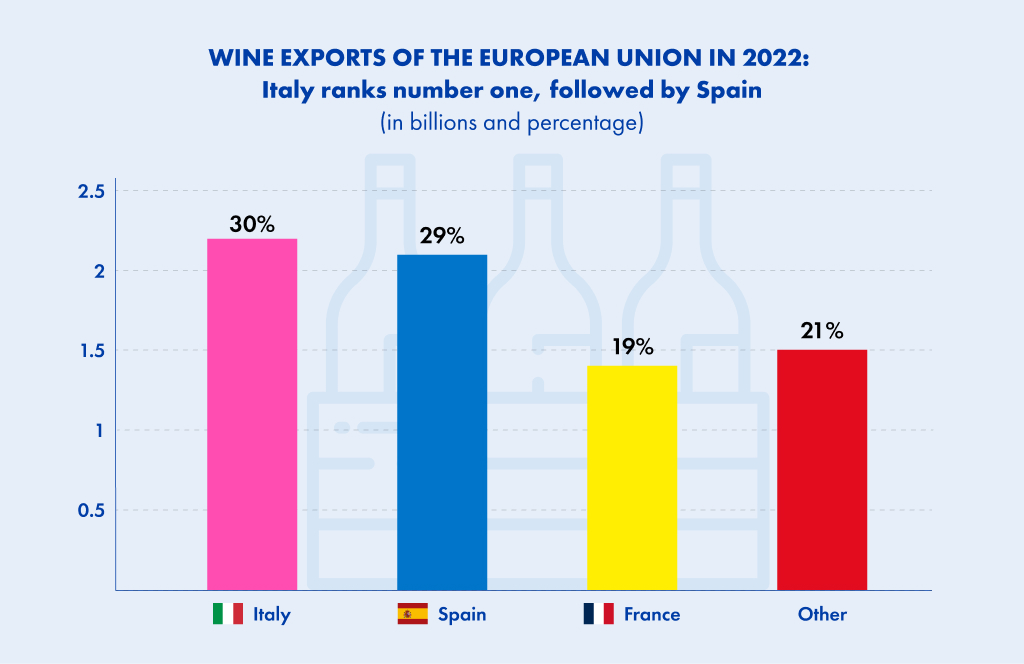Issue #147
Guten Morgen! Greetings, political aficionados and casual observers of the political circus! Welcome to another edition of Krautshell! As we teeter on the brink of the year’s grand finale, the time starts to reflect on the past 11 months of political rollercoaster rides, plot twists, and more drama than a Shakespearean play. However, this time for relaxation seems not yet to be allowed for everyone in Berlin and Brussels, as political development and unexpected turbulences keep our favorite actors busy: So, buckle up, dear readers because in this week’s edition of Krautshell we cover the controversial visit of the Turkish President Erdogan and try to figure out where-o-where the governing coalition in Germany can come up with €60 Billion Euros for the annual budget. We also share some intel from the current debate of the digitalization of the health care system. We, of course, also look at what’s going on in Great Britain whilst also preparing you for what is to come in the next couple of weeks. Remember, in the grand tradition of political newsletters, we promise to deliver news with a side of humor because, let’s face it, laughter might not solve the world’s problems, but it sure beats crying into your morning coffee. Anna Szilvia WHAT TO WATCH THIS WEEK: No soccer for the Turkish president and a challenging state visit As you wake up from a good night’s sleep (hopefully), German diplomats have been on their feet for hours as an important (and challenging) state visit is on the agenda: Turkish President Recep Tayyip Erdogan is in town, and his first visit to Germany in three years comes amid strained Turkish ties with its NATO partners. Erdogan’s stark position on the conflict in Gaza is only the latest example of discord: President Erdogan has been the loudest critic regarding Israel among NATO members and has spoken in support of Hamas amid Israel’s military operations in Gaza. While Germany along with the European Union and the United States have since designated Hamas a terrorist organization, the Turkish president has referred to Hamas as “liberators” or “mujahideen” fighting for their land. The issue is particularly sensitive in Germany, as the Turkish community is large and Erdogan’s stance has also fueled negative sentiments towards Israel within the Turkish community living in Germany, where Erdogan is still very popular and has substantial influence. Postal votes from Germany were crucial to Erdogan’s re-election earlier this year. Hence, critics called on chancellor Olaf Scholz to cancel the visit or at least find “clear words” on these issues. Scholz promised to do so, but with Turkey being an important partner in trade and in migration policy, this might not be as easy as it sounds. Yet, while Erdogan is an avid soccer fan, the Head of State claimed that he will not be attending Saturday’s international match between Germany and Turkey in Berlin. Had he decided to go, Germany would have had to send a similarly senior government official, and the optics may have been difficult… INSIGHTS FROM PARLIAMENT: Who needs better treatment? What was on the agenda in the German Bundestag this week? The digitization of the healthcare system, admittedly, sounds a bit dry. Nonetheless, it is an important topic, considering that Germany is not overly digitized while it should (in theory) be very capable in doing so. At the same time, the healthcare system could use an upgrade (think financing problems and demographic challenges). To make this happen, the Bundestag currently discusses two digitalization of health care bills (with the beautiful German names Gesundheitsdatennutzungsgesetz and Gesetz zur Beschleunigung der Digitalisierung des Gesundheitswesens). The goal is to make essential medical information available to all treating doctors and hospitals, thus significantly improving patient medical treatment. The centerpiece of the plan is the introduction of the electronic prescription, as well as the electronic patient record – at least as long as the patient does not object. And here, we are just right at the heart of German’s digitalization problems. Then, why would a patient object to being treated better and more efficiently? The answer is: data protection. A simple term, plain and logical, but impactful. Concerns about data protection complicate almost every digitalization idea because digitalization is based on the exchange of data over the (evil) internet, a concept many of us still find hard to embrace. We Germans rather share our indignation about the analog German healthcare system on TikTok, Instagram, Facebook & Co. THE BIG PICTURE: How to prioritize or Olaf’s search for 60 billion Euros Imagine, you want to spend more money to transform your economy, increase social security services, keep taxes as they are and not make new “official” debts (do not reflect about this last point, is a German thing as regular readers know). This is a big challenge – even for a German Government. Too big? In 2021, the then-finance minister and now-chancellor Olaf Scholz tried to be creative, putting extra money from a supplementary budget that was originally intended for the fight against the COVID-19 pandemic in a new fund that should be used for investments in climate protection. A great way for him to please both his government partners, the Greens (more money for the green transition) and the Free Liberals (no new debts). Not so pleased: The Federal Constitutional Court. On Wednesday it ruled against this supplementary budget. Retroactively investing money originally intended for the fight against the COVID-19 pandemic in climate protection is not in line with the rules for such supplementary budgets. Long story short: The federal budget must now handle an additional 60 billion euros that were additionally planned in the fund. With a planned total volume of the federal budget for 2024 amounting to 445 billion euros, this is a substantial amount. So, what now? No one really knows. The discussion for the 2024 budget was in its final stage, with the parliament aiming to adopt the budget in the first week of December. The government seems not to have had a Plan B for the 60 Billion Euros ready and with the different priorities in the coalition (and the overall not so great mood), discussions run high and hard decisions will need to be made… The Government has experienced some seismic shakes this week, in their first full week back in Parliament after the glitzy and glamorous opening of Parliament initiated by the King’s Speech, last Tuesday. Prime Minister Rishi Sunak ruffled some feathers with his newest reshuffle, early Monday morning, sparked by Home Secretary Suella Braverman getting the boot, after writing a controversial op-ed in The Times ahead of the pro-Palestine protests on Armistice Day. Prominent voices on the right of the Conservatives immediately attacked the sacking with Sir Jacob Rees-Mogg saying that the move to sack Braverman will make it harder for them to win the next General Election, forecast for Autumn 2024. Braverman was replaced by former Foreign Secretary, James Cleverly – due to his popularity amongst the Conservative frontbenches and his commitment to stick to party lines. Former Prime Minister David Cameron has taken Cleverly’s former position as Foreign Secretary in an unexpected move that stunned Westminster. This makes him the first former Prime Minister to re-enter Government since the 1970s. As Cameron left the House of Commons in 2016, he will now join the House of Lords to assume his Cabinet role as Lord Cameron. In another blow to the Government’s hopes of winning next year’s election, the UK Supreme Court have unanimously ruled that the Government’s scheme to send asylum seekers to Rwanda was unlawful. Their ruling considers Rwanda not to be a safe third country, dealing a large setback to Sunak’s immigration policies and another major election pledge unlikely to take hold. Another busy week in British politics, stay tuned for the Autumn Statement (one of our two big fiscal events of the year) next week… Source: ec.europa.eu Here are three appointments for next week that you should have on your radar: „If It Ain’t Baroque, Don’t Fix It” I recently re-read Volker Press’ book “Kriege und Krisen” – an account of German history between 1600 and 1715. I read it in university and loved it back then. It’s a dense book, not much storytelling going on – in short: a typically German academic book that must sit like a brick on booksellers shelves. The book has a couple of advantages, though. first: If you think we live in difficult times, comfort yourself by reading the history of the 17th century. plague, civil war, men in pantyhoses – it was hell. Second: If you think that social media is toxic and undermines the capability to compromise, you might find encouragement in the fact that the printing press – or rather: the religious pamphlets printed with it – drove Germany absolutely mad before the 30 years war. People incapable of handling new kinds of media? we had it all before. It only took a 30 year civil war to figure it out. Cheer up! Third: The 17th century was an absolute party zone for public sector reform fans. the modern nation state and their bureaucracies, standing armies, tax regimes – all invented back then. Hard to overestimate how important institutional innovation was: Those who figured it out – France, Prussia – came out as top dogs of the centuries to follow. Those who didn’t (Hapsburg, Spain…) faced decline. Talking about institutional innovation: As it happened, I also visited the smart country convention last week – a public sector meet and greet. Are we organizing the public sector for success? I left with “mixed feelings”… Issue #147


FIRST, AN OUTLOOK FROM THE UK:
NOW, SOME SOLID INTEL:
AND WHAT’S UP IN GREAT BRITAIN?
TAKE A BREAK, GIVE YOUR EYES A REST:

LONG STORY SHORT:
OUTLOOK:
When?
What?
November 20th & 21st, 2023
The German Federal Government is hosting the Digital Summit to discuss topics and solutions pertaining to digital transformation in times of the “Zeitenwende”.
November 22nd, 2023
General Elections in the Netherlands
November 26th, 2023
OPEC+ Ministerial Meeting
WHAT’S ON OUR MINDS:





